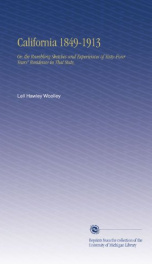The Wit and Humor of America, Volume VIII (of X)

Info about the book
Author:
Series:
Unknown
ISBN:
1426494246
Rating:
4.5/5 (4)Your rating:
Languge:
English
Users who have this book
Users who want this book
What readers are saying
What do you think? Write your own comment on this book!
write a commentif you like The Wit and Humor of America, Volume VIII (of X) try:
Other books by this author
Info about the book
Author:
Series:
Unknown
ISBN:
1426494246
Rating:
4.5/5 (4)Your rating:
Languge:
English
if you like The Wit and Humor of America, Volume VIII (of X) try:
Other books by this author
Do you want to read a book that interests you? It’s EASY!
Create an account and send a request for reading to other users on the Webpage of the book!


















